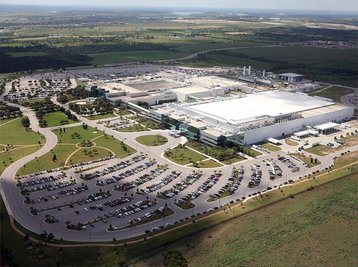The temporary shutdown of Samsung’s Austin-based S2 foundry may have reduced around 1-2 percent of the global 300mm wafer supply for the month of February.
The facility was forced to cease production due to rolling power outages enforced by utilities during Storm Uri, as natural gas supplies froze over.
For breaking data center news, subscribe to DCD's newsletter
Because chip supplies weren't limited enough as it is
A TrendForce analysis of the shutdown notes that the facility produces about five percent of the global supply of 300mm products, primarily at 14nm and 11nm nodes, as well as some 65nm to 28nm chips and automotive semiconductors for Tesla and Renesas.
With Samsung shutting the site down slowly, after being given sufficient warning, it is not believed that any supply was damaged. Instead, the production was simply delayed.
But the outage - which also impacted NXP and Infineon fabs - will add additional strain to an industry struggling to meet demand. A global semiconductor shortage has particularly hurt the automotive industry, with car factories left to idle without the chips they need.
Much of the world's chip supply comes from Taiwan, where TSMC produces the majority of semiconductors - particularly the more advanced 7nm and 5nm products.
This month, Asia Times reported that to meet rocketing demand for 5nm chips TSMC plans to add 1,000 engineers to its facilities in Tainan’s Southern Taiwan Science Park, as it seeks to increase its production of about 60,000 to 70,000 wafers per month up to 120,000 wafers a month.
The company is also building a 3nm process fab in Tainan, with volume production expected in the latter half of 2022.




